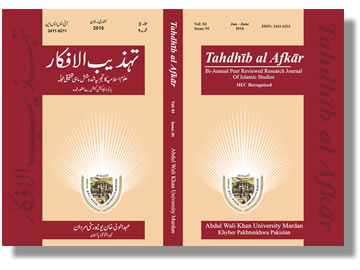Islam & Values of Modernity: A Study of Ziauddin Sardar
Abstract
The advent of modernity demanded Muslim scholarship need to produce such thinking which can work as foundation for the critical thinking in Muslim societies for survival against the charges of modernity against Islam. Since the time Muslims confronted modernity and its values, there have been voices who understood that traditional approaches and interpretations are not appropriate to cope with the problems, modernity posed to Islam. The sacred message can be well defended by re-reading, and re-interpreting it according to the needs of modern Muslim societies. This purpose could be achieved through one of the core Islamic values, the notion of Ijtihad, which has been misperceived by orthodox Muslim scholars. One of such voices is Zia Uddin Sardar, a case, who leads a pack of like-minded modern Muslim intellectuals. Sardar tries to create an alternative future for Muslim societies by starting a new discourse in Islamic thought. For him Islam just provides the direction to how to live and move forward. It provides with us the vision of just and equitable society, invites for the reflection, thought and discovery. Sardar proposes the same kind of liberation for Islam as Christianity went through. We need to be as simple and have as inclusive an approach as possible. Shar‘ῑah, being an ethical framework, does not change but the Islamic law continues to change and evolve, he writes. We can't just denounce and criticize what is bad in Islamic tradition but we also need to come up with a solution.





